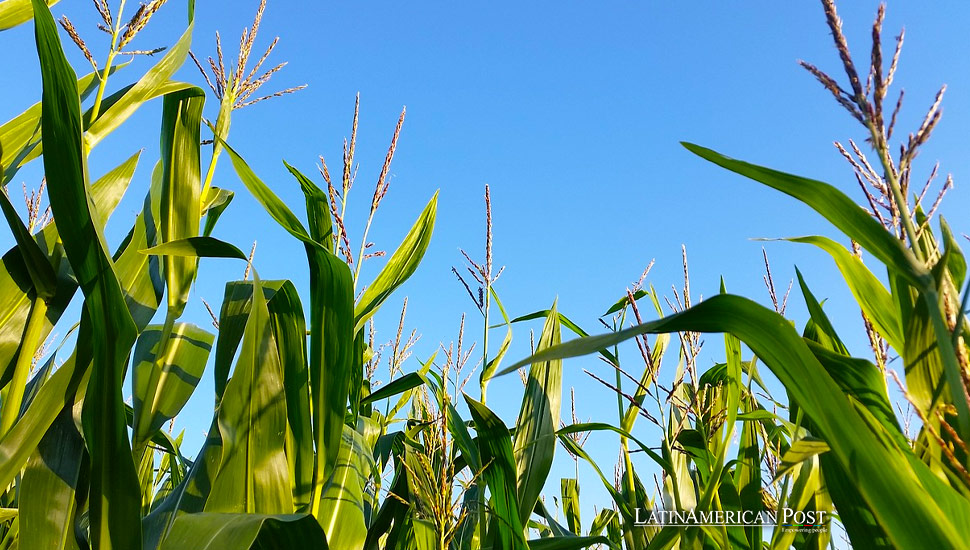Argentina to Start Corn Exports to China in July 2024

Argentina, a major global corn supplier, will export corn to China in July 2024. This development follows confirmation from Chinese authorities that all conditions for export have been met, promising a significant boost for Argentina’s agricultural sector.
Renowned for its rich agricultural heritage and capacity, Argentina is poised to expand its global reach with a significant milestone in its corn export industry. As the world’s third-largest supplier of corn, following Brazil and the United States, Argentina has announced that it will begin exporting corn to China starting in July 2024. This landmark development, revealed by Gustavo Idigoras, the head of the CIARA-CEC chamber, marks a pivotal moment for Argentine agriculture and its global trade relations.
Argentina Secures Chinese Market Access
The Argentine government had been targeting the lucrative Chinese market, awaiting the approval of pending import licenses. These licenses are now in place, setting the stage for Argentina to tap into one of the world’s largest markets for corn.
With its rapidly growing demand, China imports about 20 million tons of corn annually, primarily for animal feed. Brazil currently dominates this market, but with its robust agricultural infrastructure and expertise, Argentina is well-positioned to become a key supplier. “The Chinese market is growing with 20 million tons of annual imports. Brazil is the first supplier. So Argentina has all the conditions to be a strong and reliable supplier of corn for animal feed,” Idigoras added, underscoring the strategic importance of this development.
The agreement to open Argentine corn exports to China was initially struck last year, but no shipments were made due to unresolved issues. This new announcement signals that those barriers have been overcome, paving the way for a seamless flow of corn exports. The journey has been long and fraught with challenges, including China’s stringent regulations on genetically modified organisms (GMOs).
Historical Negotiations and GMO Approvals
Over a decade ago, Argentina and China began negotiations to facilitate the trade of Argentine corn, most of which is genetically modified. A limited amount of Argentine corn was allowed into China in 2012 as a test, but concerns around GMOs stalled further progress. The recent authorization by Chinese authorities for two varieties of herbicide-tolerant GMO corn grown in Argentina has finally eased these restrictions. This breakthrough simplifies the export paperwork and aids Chinese importers in obtaining necessary permits, streamlining the process.
The timing of this development is particularly favorable as Argentine farmers are in the initial stages of harvesting corn for the 2023/24 season. The major Rosario grains exchange estimates this season’s production at 47.5 million tons, a substantial volume highlighting Argentina’s capacity to meet domestic and international demand. This bumper harvest aligns perfectly with the Chinese market’s opening, promising Argentina a significant economic boost.
Argentina’s agricultural prowess is a point of national pride and a critical component of its economy. The ability to export corn to China will provide a much-needed infusion of revenue, supporting farmers and bolstering the country’s overall economic stability. Moreover, this move has the potential to enhance Argentina’s standing in the global agricultural arena, positioning it as a reliable and competitive supplier in one of the world’s most significant markets.
Strengthening Bilateral Relations
The implications of this agreement extend beyond mere economics. It represents strengthening bilateral relations between Argentina and China, fostering greater cooperation and mutual benefit. For Argentina, this relationship opens up additional opportunities for trade and investment, contributing to broader economic growth and development.
In the context of Latin American history and trade, Argentina’s foray into the Chinese corn market reflects the region’s evolving economic landscape. Latin America has long been a critical player in global agriculture, with countries like Argentina, Brazil, and others contributing significantly to the world’s food supply. This new export agreement is a testament to the region’s ability to adapt and thrive in a competitive global market, leveraging its agricultural strengths to forge new trade partnerships.
Furthermore, this development underscores the importance of technological advancements and regulatory frameworks in shaping international trade. The resolution of issues related to GMOs illustrates the critical role of science and policy in facilitating global commerce. By addressing these challenges, Argentina has demonstrated its capacity to meet international standards and compete effectively on the world stage.
Anticipation and Preparedness
As Argentina prepares to commence corn exports to China, the anticipation and excitement within the agricultural sector are palpable. This venture promises to usher in a new era of opportunity and growth for the corn industry and the broader Argentine economy. Farmers, exporters, and policymakers alike are gearing up to maximize the benefits of this historic agreement, ensuring that Argentina capitalizes on its agricultural potential to the fullest extent.
Also read: Argentina’s Milei Agrees on Tax Reductions Contingent on Congress Passing Proposed Economic Reforms
The world will watch as the first Argentine corn shipments make their way to Chinese ports in July 2024. This event marks a significant achievement in Argentina’s agricultural history and a promising step forward in its economic journey. The successful execution of this export agreement will undoubtedly pave the way for future collaborations and reinforce Argentina’s position as a key player in global agriculture. In conclusion, Argentina’s forthcoming corn exports to China represent a landmark moment, reflecting its agricultural capabilities and strategic trade relationships. This development is a testament to the resilience and adaptability of Argentina’s agricultural sector, poised to impact the global stage significantly. As the nation looks ahead to July 2024, the promise of new opportunities and economic growth shines brightly, heralding a new chapter in Argentina’s storied agricultural legacy.





